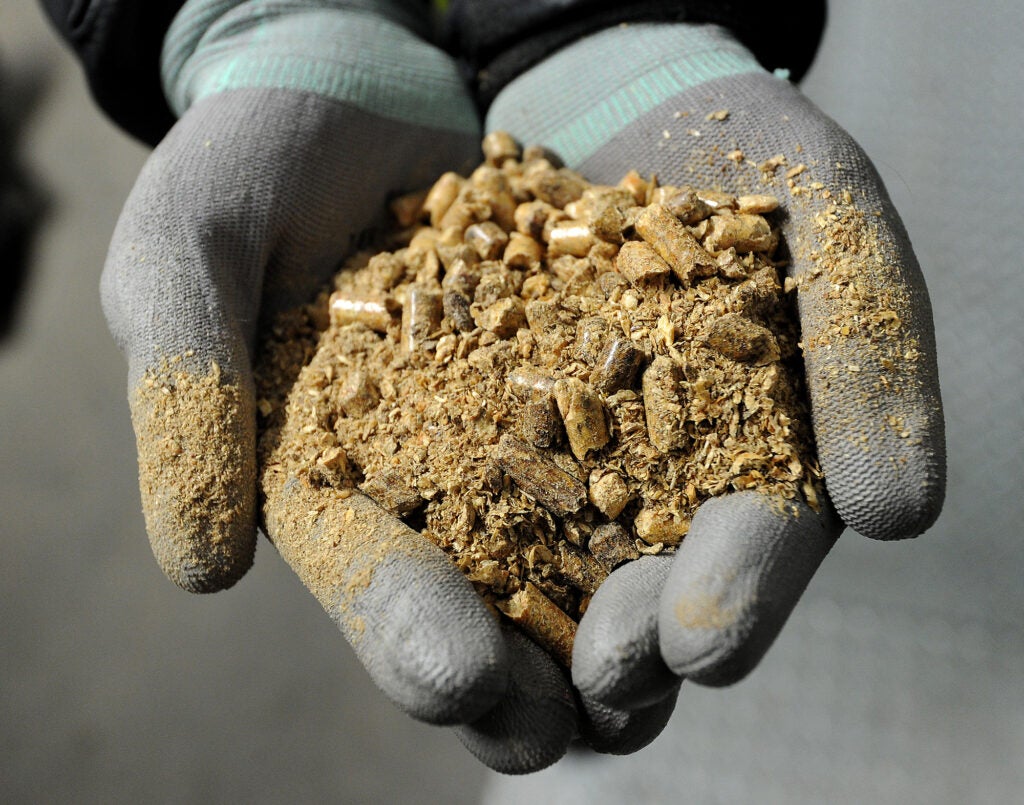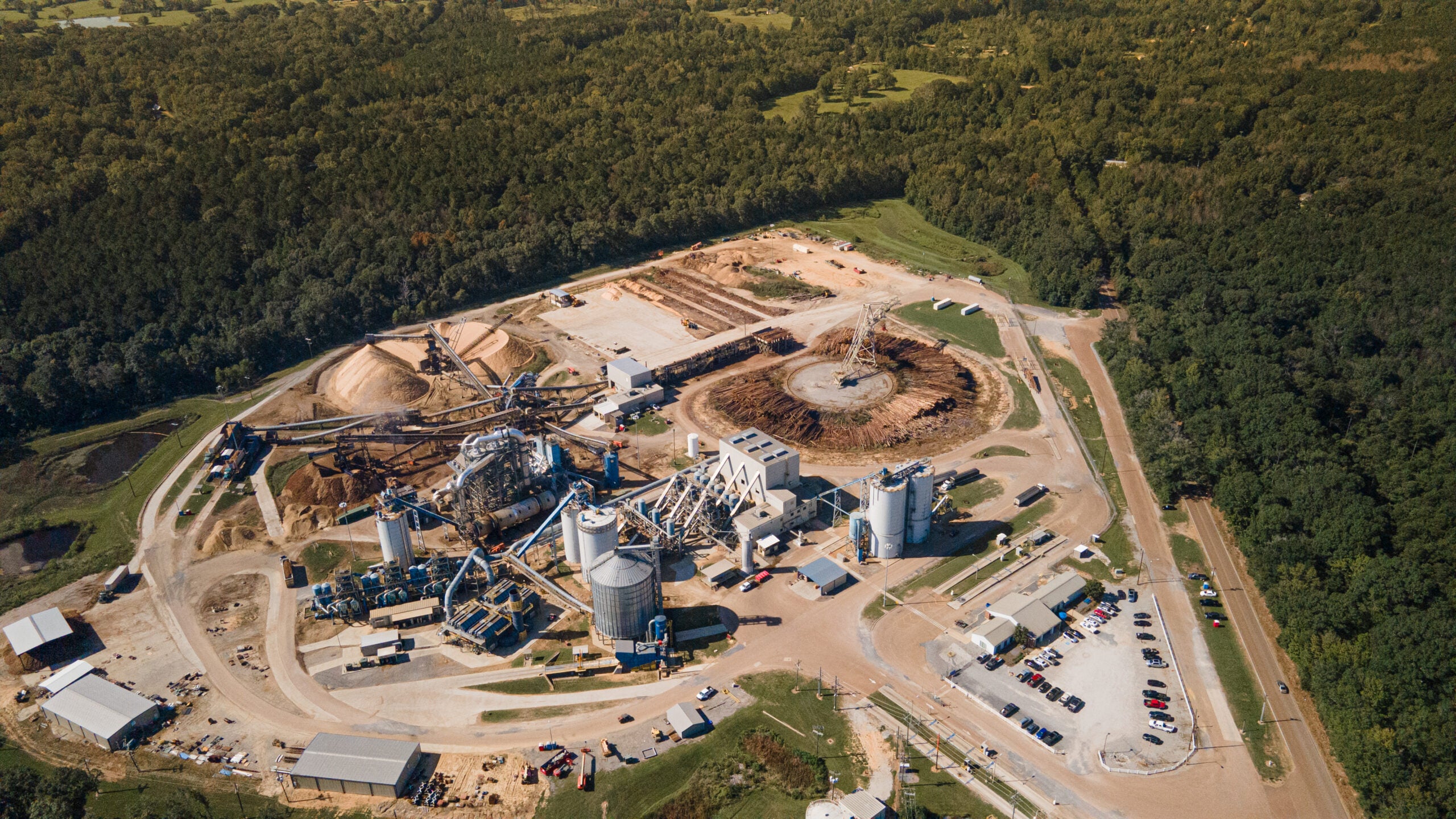Wood Pellet Manufacturing in the South Harms Communities and the Environment
Poor, Black, and rural communities in the South are disproportionately affected.
As temperatures rise and extreme weather events become the new normal, the world is looking for clean energy alternatives to alleviate the climate crisis caused by burning fossil fuels. The industrial wood pellet industry, which manufactures and exports wood pellets to burn in power plants to produce electricity, has touted itself as being a sustainable and carbon neutral solution, but the reality is wood pellet manufacturing facilities have severe environmental, health, and social impacts.
Policy measures and subsidies have given the wood pellet industry — which currently consists of mostly foreign companies — incredible financial benefits over the past decade. Yet, the predominantly Black and poor communities in the Southern United States, where the majority of wood pellet manufacturing plants are located, have suffered.
Now, as wood pellet manufactures continue to see huge financial gains, they are making plans to expand, not just in the South but in the Northwest as well, threatening even more communities and forest ecosystems.
What are wood pellets?
Wood pellets are small, uniform, and cylindrical, with a denser configuration of wood fibers, which can be burned to release energy. They are made by turning trees and tree products into wood chips and sawdust. These chips then go through a drying process that requires intense heat, usually from a combustion reaction, which releases NO2 and volatile organic compounds (VOCs) into the air. After drying, rotating hammermills create a fine fiber, which is then pressed into a compressed wood pellet at high pressures. Wood pellets are used in fireplaces, household furnaces, stoves, and ovens as a form of “green” energy.

Wood pellets at a biomass facility at Drax Power Station near Selby, England. (Anna Gowthorpe / Getty Images)
Are they really a “green” source of energy?
No, definitely not. Cutting down trees and burning the wood for energy not only adds carbon to the atmosphere but also clear-cuts trees that remove carbon from the atmosphere. Burning wood pellets puts more carbon immediately into the atmosphere than coal. Wood pellet manufacturing plants release harmful air pollution, like nitrogen oxides and fine particulate matter (PM2.5).
Then why has the industry grown so quickly in recent years?
Government energy policies and subsidies aimed at addressing climate change are rewarding the industry for its allegedly “clean” energy solution and have driven demand and the increase of wood pellet production. The European Union classified biomass as a renewable energy in 2009, based on the wrongful assumption that when a tree is cut down for energy production, a new one will be planted and would immediately provide all the benefits of the tree that was cut down. But, of course, not all trees will be replanted, and even where they are, it takes up to 50 years to repay the “carbon debt” lost when a tree is harvested. This policy has resulted in the rapid growth of the wood pellet industry, and a proposed rule in the United States would do the same.
How have wood pellet manufacturers impacted communities in the South?
Although foreign policies and foreign companies are driving the growth of the wood pellet industry, production has mainly occurred in the United States, and specifically in the South. Ninety one (91) wood pellet manufacturing plants are located in the Southern United States, constituting 75% of U.S. production. Most pellets manufactured in the United States are used for commercial-scale energy overseas.
Wood pellet manufacturing plants emit harmful pollutants and noxious substances, including VOCs and PM. Airborne wood dust and pollution cause health problems, noise disturbs the usual peace of rural living, and industrial-scale logging robs communities of important forest benefits.
Wood pellet plants are more than twice as likely to be in predominantly Black and poor communities, further contributing to environmental injustices in the South.
Mississippi, for instance, is home to seven wood pellet plants, including one in Gloster, operated by Amite BioEnergy, a subsidiary of the UK company Drax. Gloster is a predominantly Black, rural community located in southwest Mississippi. It is home to 897 people, of which 71% are Black and nearly 40% live in poverty, with an annual median household income of $22,131. Since it began operating its Gloster in 2015, Drax has violated its air permit every year. In 2021, the Mississippi Department of Environmental Quality fined the company $2.5 million for exceeding its emission limits. In 2023, Drax was again found to be in violation of its air permit. Air and noise pollution concentrations in Gloster far exceed those in other Mississippi towns, and residents’ quality of life has suffered as a result.
In a recent victory for nearby communities, the state pushed back against Drax’s attempt to increase its pollution levels even further. In the spring of 2025, the Mississippi Department of Environmental Quality denied Drax’s request to raise its permitted emissions to the level of a “major source” of hazardous air pollutants (HAPs). Instead, the state required the company to comply with its existing pollution limits.
Drax also operates two wood pellet manufacturing facilities in Louisiana operated by Morehouse BioEnergy LLC and LaSalle BioEnergy LLC, respectively. According to testing conducted in 2023, these facilities too have emitted high rates of dangerous air pollutants.
What can we do about it?
There must be transparency and accountability for the wood pellet industry to protect communities and minimize impacts to the environment.
Policies and subsidies must acknowledge the dangers of the industry and not reward big companies for harmful practices. Incentives intended to combat climate change should not include wood pellets unless the best available science demonstrates that doing so will not increase CO2 in the near-term and will not harm vulnerable communities, which it has not.
State and federal permitting agencies should conduct a full and thorough analysis of potentially harmful emissions prior to approving permit applications for wood pellet manufactures. These permit analyses should also confirm that operations would not perpetuate existing inequalities in pollution exposure in Black, brown, Indigenous, and low-income communities. And if granted, permits should be properly enforced when terms are violated.
The Gulf Regional Office works with communities and other partners fighting for a healthy and just future in the Gulf. We work to cut pollution, end fossil fuel expansion, protect our region’s precious places and wildlife, transition to clean energy, and drive climate solutions that work for everyone.
Dustin Renaud
Public Affairs and Communications Strategist, Earthjustice
drenaud@earthjustice.org
